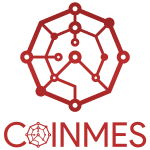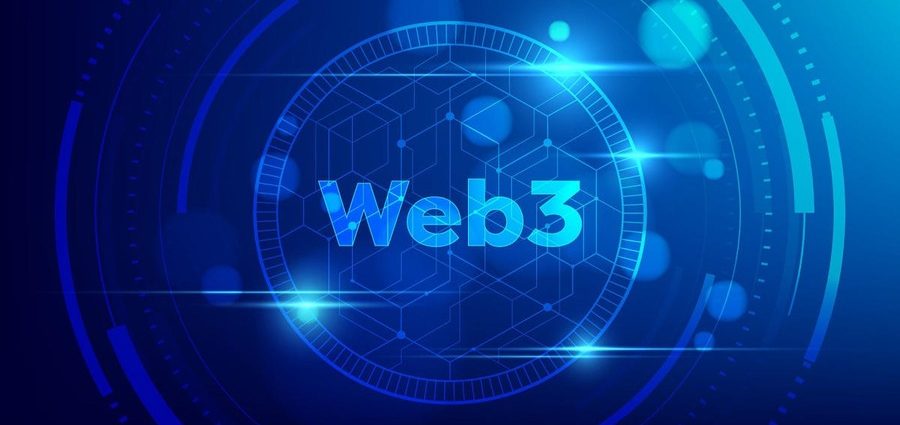In recent years, the concept of Web 3 has become more popular and widely adopted. With the advent of this new era, intellectual property, and copyright law have been greatly impacted. Web3 is the next generation of the internet, where data is decentralized, and users have greater control over their digital identity. In this article, we will explore the impact of Web 3 on intellectual property and copyright law and how it affects the creators and users of digital content.
Introduction to Web 3
Web 3, also known as the decentralized web, is a network that enables peer-to-peer transactions and removes intermediaries such as social media platforms, cloud storage providers, and e-commerce platforms. The decentralized web is based on blockchain technology, which allows for the creation of decentralized applications (dApps) that run on a distributed network of computers rather than a centralized server.
The Impact of Web 3 on Intellectual Property
The decentralized nature of Web 3 has brought about significant changes in how intellectual property is managed and protected. In the traditional internet model, content creators rely on centralized platforms to host and distribute their content. However, with Web 3, creators can use dApps to host their content on a decentralized network and retain greater control over their digital assets.
NFTs and Intellectual Property
One of the most significant impacts of Web 3 on intellectual property is the rise of non-fungible tokens (NFTs). NFTs are unique digital assets that are stored on a blockchain and verified using smart contracts. They can be used to represent anything from art to music to collectibles.
NFTs have revolutionized the way digital content is sold and distributed, allowing creators to monetize their content in new ways. By using NFTs, creators can prove ownership of their content and control the distribution and sale of their works.
Smart Contracts and Intellectual Property
Another impact of Web 3 on intellectual property is the use of smart contracts. Smart contracts are self-executing contracts that are stored on a blockchain and automatically enforce the terms of the contract. They can be used to automate processes such as licensing and royalties.
With smart contracts, creators can specify the terms under which their content can be used and receive automatic payments when their content is used. This makes it easier for creators to manage their intellectual property and ensure they receive fair compensation for their work.
The Impact of Web 3 on Copyright Law
The rise of Web 3 has also had an impact on copyright law. Copyright law is designed to protect the rights of creators and ensure they are compensated for their work. However, with the decentralized nature of Web 3, traditional copyright laws may not be applicable.
Decentralized Autonomous Organizations (DAOs) and Copyright Law
One of the challenges posed by Web 3 to copyright law is the rise of decentralized autonomous organizations (DAOs). DAOs are decentralized organizations that are run by code rather than a central authority. They can be used to manage digital assets, including content.
The decentralized nature of DAOs makes it difficult to determine who owns the content and who is responsible for enforcing copyright law. This poses a challenge to copyright law, which relies on centralized authorities to enforce copyright infringement.
International Copyright Law and Web 3
Another challenge posed by Web 3 to copyright law is the international nature of the decentralized web. With the rise of Web3, digital content can be accessed and distributed from anywhere in the world. This makes it difficult to enforce copyright law across borders.
International copyright law is still evolving, and it remains to be seen how it will adapt to the challenges posed by Web3. Some experts have suggested that international copyright law needs to be updated to reflect the decentralized nature of the web and provide more clarity on how copyright can be enforced across borders.
The Future of Intellectual Property in Web 3

The decentralized nature of Web 3 presents a number of exciting opportunities for the future of intellectual property. For instance, the use of smart contracts and NFTs can enable new models for licensing and monetizing digital content, such as micropayments and revenue-sharing models.
Additionally, the decentralized nature of Web3 can foster greater collaboration and innovation. Decentralized networks can enable creators to work together and build on each other’s ideas in a way that is not possible in a centralized model.
However, there are also concerns that the decentralized nature of Web3 could lead to greater infringement of intellectual property rights. For instance, it may be difficult to track down infringers in a decentralized network, or to enforce copyright infringement in jurisdictions that do not have the same laws as the creator’s jurisdiction.
The Need for New Copyright Laws in Web 3
To fully realize the potential of Web 3, it may be necessary to create new copyright laws that are specifically designed to address the challenges and opportunities presented by the decentralized web. This could include laws that provide greater clarity on the ownership and management of digital assets, as well as laws that enable new models for licensing and monetizing content.
Additionally, there may be a need for international copyright laws that are designed to work in a decentralized, global network. This could involve developing new mechanisms for enforcing copyright infringement across borders, or creating new international agreements that address the challenges posed by Web3.
Ultimately, the impact of Web3 on intellectual property and copyright law is still evolving, and it will require ongoing dialogue and collaboration among creators, lawmakers, and technology experts to realize its potential fully.
The Importance of Digital Identity in Web 3
Web 3.0 is built on the idea of decentralized digital identity, where users have greater control over their personal data and online identities. This has important implications for intellectual property and copyright law.
In a decentralized web, users can control how their personal data is used, including their intellectual property rights. This means that creators can choose how their digital content is distributed and can even set their own terms and conditions for its use.
This has led to the rise of new models for licensing and monetizing digital content, such as pay-per-use models or subscription-based models. Additionally, the use of blockchain technology can provide greater transparency and accountability in the management of intellectual property rights.
Challenges of Enforcement in Web 3 and its Potential Solutions
Challenges of Enforcement:
- Decentralization of Web 3.0 makes it difficult to track down infringers of intellectual property rights
- Enforcing copyright infringement across borders is challenging because of the different laws and regulations in different jurisdictions
- Lack of a centralized authority to enforce rules and regulations can create a sense of lawlessness in the decentralized network
- Decentralized networks can make it difficult to identify the owners of digital assets, such as copyrighted content
- Lack of clear guidelines for copyright infringement in a decentralized network, which can lead to uncertainty and confusion
- Difficulty of enforcing intellectual property rights in a decentralized network where there is no centralized authority or governing body
Potential Solutions:
- Use of smart contracts to automate the enforcement of copyright infringement
- Creation of blockchain-based solutions that enable cross-border enforcement of intellectual property rights
- Implementation of new models of governance, such as decentralized autonomous organizations (DAOs), to manage digital assets and ensure proper compensation for creators
- Development of new protocols and standards to enable interoperability between different networks and applications, making it easier to track down infringers and enforce copyright infringement
- Education and awareness-raising campaigns to help creators and users understand the implications of Web 3 and intellectual property rights and to foster a culture of respect for these rights in the decentralized network.
Conclusion
In conclusion, the rise of Web 3 has had a significant impact on intellectual property and copyright law. While it has provided new opportunities for creators to monetize their work and retain greater control over their digital assets, it has also posed new challenges for copyright law, particularly with the rise of decentralized autonomous organizations and the international nature of the decentralized web.
As Web 3 continues to evolve and become more widely adopted, it will be important for lawmakers and creators to adapt and develop new strategies for managing intellectual property and enforcing copyright law.
FAQs
- What is Web 3?
Web 3 is the next generation of the internet, where data is decentralized and users have greater control over their digital identity. - What are NFTs?
NFTs are unique digital assets that are stored on a blockchain and verified using smart contracts. - How do smart contracts impact intellectual property?
Smart contracts can be used to automate processes such as licensing and royalties, making it easier for creators to manage their intellectual property and ensure they receive fair compensation for their work. - What are DAOs?
DAOs are decentralized organizations that are run by code rather than a central authority. They can be used to manage digital assets, including content. - How does Web 3 impact copyright law?
Web 3 poses new challenges for copyright law, particularly with the rise of decentralized autonomous organizations and the international nature of the decentralized web. It remains to be seen how copyright law will adapt to these challenges.
I have over 10 years of experience in the field of cryptocurrency and have written numerous books on the subject. I am a highly sought-after speaker and consultant on all things crypto, and my work has been featured in major media outlets such as The Wall Street Journal, CNBC, and Forbes. I am also a regular contributor to CoinDesk, one of the leading publications in the space. In addition to my writing and consulting work, I am also an advisor for several blockchain startups.

